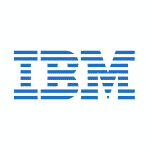Go through the Introduction to Cloud Computing Quiz to explore deep into fundamental concepts and gain a comprehensive understanding.
Need a Free Career
Counselling Session?
Recent Posts
Follow Us on



Upskill for your Dream Job
By providing your contact details, you agree to our Terms of Use & Privacy Policy
- Batch Of 5 Students
- Brainstorming Sessions
- Career Oriented Training
Trusted By Employees Of






Boost your It career preparation
Download Free eBooks
Don't miss out
Register Now For Our
Upcoming Webinar
- TOPIC - Master Your Resume & LinkedIn: 10 Essential Tips & Tricks!
- Date : 11 AM EST, 27-04-2024
Open chat
1
Expert Guidance?
ThinkCloudly
Hello, how can we help you?

